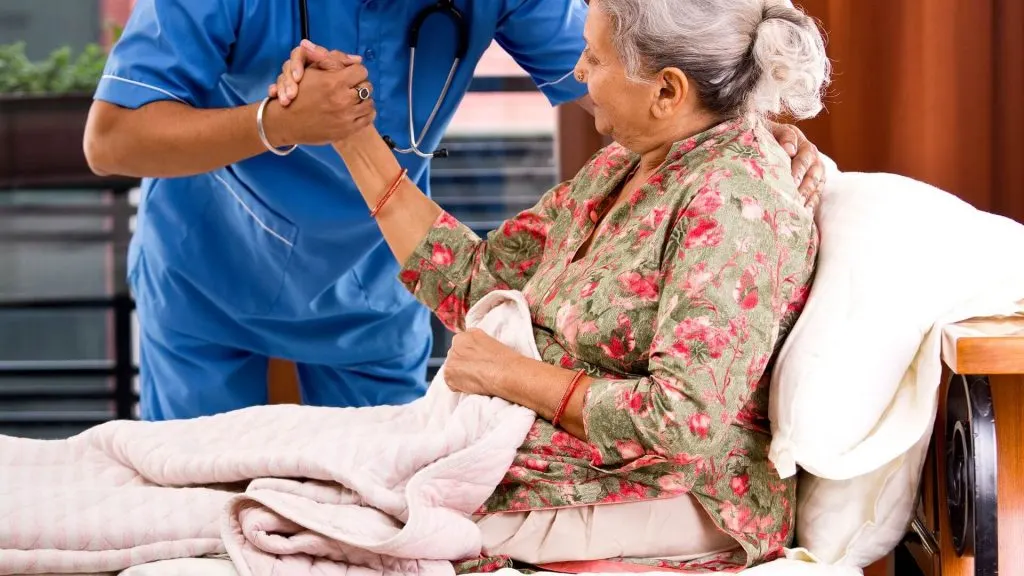The well-being of our loved ones in nursing homes is a concern that many families take very seriously. Unfortunately, instances of nursing home abuse can occur, leaving families in distress and unsure of how to proceed. If you suspect or have evidence that your loved one is being mistreated, it’s crucial to take immediate and informed action to ensure their safety and seek justice. Here’s a comprehensive guide on the essential steps to take if you discover that a loved one is a victim of nursing home abuse.

Confirm the Abuse and Document Evidence
The first and most critical step in addressing suspected nursing home abuse is to confirm the abuse and gather as much evidence as possible. This process involves observing any physical signs of abuse, such as unexplained bruises, bedsores, or malnutrition, and listening carefully to your loved one’s account of their experiences. Behavioral changes like sudden withdrawal or anxiety can also be indicative of mistreatment. Document all observations meticulously, including dates, times, and descriptions of incidents. Photographic evidence of physical injuries or unsanitary living conditions can also be invaluable. Maintaining a detailed record of conversations with the nursing home staff and administration is also important. Should the need arise to take further action, consulting with Elder Law Attorneys can provide the necessary legal guidance and support. This documentation will serve as a crucial tool if you need to report the abuse to authorities or seek legal recourse through experienced professionals specializing in elder law.
Report the Abuse to the Appropriate Authorities
Once you have gathered sufficient evidence, the next step is to report the abuse to the appropriate authorities. Start by contacting the nursing home’s management to formally lodge a complaint. Most facilities have an internal grievance procedure that must be followed. However, do not rely solely on the facility’s internal process, as it may not always lead to a satisfactory resolution. In parallel, you should report the abuse to external regulatory bodies such as the state’s Department of Health or the Office of Long-Term Care Ombudsman. These agencies are responsible for overseeing nursing home operations and have the authority to investigate allegations of abuse. Additionally, local law enforcement should be informed if the abuse involves criminal activities, such as physical violence or theft. Ensuring that the abuse is reported to multiple entities can increase the likelihood of a thorough investigation and prompt intervention.
Explore Support Options
Navigating the aftermath of nursing home abuse often requires legal intervention. Consulting with an attorney who specializes in elder law or nursing home abuse is crucial for understanding your legal options and pursuing compensation for the harm caused. An experienced lawyer can help you file a lawsuit against the facility or its staff, seek damages for your loved one’s suffering, and advocate for their rights. Additionally, exploring support options such as counseling services for your loved one and family members can help address the emotional impact of the abuse. Community organizations and support groups dedicated to elder rights can provide resources and advocacy, offering both practical assistance and emotional support.
Contact a Nursing Home Abuse Attorney
Engaging with a qualified nursing home abuse attorney is a critical step in addressing and resolving the situation effectively. You should know that a nursing home abuse attorney in San Diego or another place with experience in this field can provide expert guidance on how to navigate the legal system and pursue justice. These attorneys are well-versed in the complexities of nursing home regulations and can assist in gathering evidence, filing claims, and negotiating with insurance companies or the facility itself. Their expertise ensures that your case is handled with the utmost care and attention to detail. By consulting with an attorney who specializes in nursing home abuse, you can better understand your legal rights, explore potential compensation for your loved one’s suffering, and work towards holding the responsible parties accountable.
Ensure Immediate Safety and Care
The immediate priority should be ensuring your loved one’s safety and well-being. If abuse is suspected or confirmed, consider transferring your loved one to a safer environment, such as another facility or a temporary living arrangement with family members. This step helps prevent further harm and provides your loved one with a more secure and supportive setting. Additionally, arrange for a thorough medical examination by a trusted healthcare provider to address any injuries or health issues resulting from the abuse. Ensuring that your loved one receives proper medical attention is crucial for their recovery and can also provide further evidence of the abuse.

Review and Strengthen Facility Policies
In light of the abuse, it is important to review and understand the policies and procedures of the nursing home in question. This involves examining the facility’s compliance with state and federal regulations, including staff training, safety protocols, and grievance procedures. By assessing these policies, you can identify potential areas where the facility may have fallen short and advocate for necessary improvements. This process can also inform your discussions with regulatory bodies and legal representatives, helping to strengthen your case and push for systemic changes that could prevent future occurrences of abuse.
Advocate for Systemic Change
Beyond addressing the immediate situation, advocating for systemic change can help prevent nursing home abuse on a broader scale. Engage with local and national organizations dedicated to elder care and abuse prevention to raise awareness and support policy changes. Participating in advocacy efforts can contribute to stronger regulations, better oversight, and improved standards of care in nursing homes. By joining forces with other concerned individuals and groups, you can help drive meaningful reforms that benefit not only your loved one but also countless others facing similar challenges.
Dealing with nursing home abuse is a daunting and emotional challenge, but taking prompt and informed action can help ensure your loved one’s safety and seek justice. By confirming the abuse, reporting it to the right authorities, consulting with a specialized attorney, and advocating for systemic changes, you can address both the immediate and long-term impacts of the situation. Your efforts can lead to improved care for your loved one and contribute to a safer environment for all residents in nursing homes. With determination and the right resources, you can navigate this difficult process and work towards achieving a positive outcome.

Jessi is the creative mind behind The Coffee Mom, a popular blog that combines parenting advice, travel tips, and a love for all things Disney. As a trusted Disney influencer and passionate storyteller, Jessi’s authentic insights and relatable content resonate with readers worldwide.
